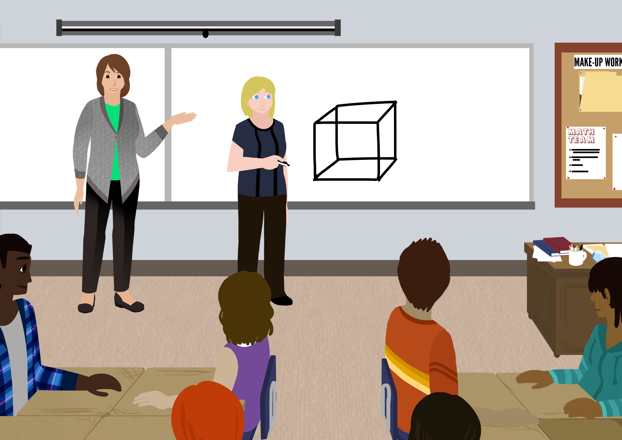For this project, we created an adaptation to lesson study. Teachers discussed animations made by the research team to get ideas for planning a problem-based lesson. We recorded the teachers’ implementation of the lessons and led video clubs in the reflection step for teachers to pay attention to student thinking.

The project addresses three fundamental problems in professional development. One problem is the lack of a centralized curriculum that affects teachers’ discussions pedagogical issues around specific content. The animations anchor teachers’ discussions of pedagogical issues by showing examples of problem-based lessons and promoting teachers’ development of an inquiry stance for understanding student thinking during problem-solving. A second problem involves teachers’ difficulties focusing their observations on student thinking. The video clubs allow for showcasing examples from various classrooms and provide opportunities for a deep analysis of student thinking when solving complex tasks. A third problem is that of providing opportunities for practice-based professional development. By having all teachers teach the lesson in their classrooms, the adaptation to lesson study supported teachers in applying what they learned in professional development sessions. Overall, the project enhances lesson study implementation in the U.S. by producing a viable model that engages teachers across school districts who teach the same content area, thus helping to overcome teachers’ sense of isolation by building a professional community.
Teachers’ discussions of student thinking in the study group meetings was significant and their implementation of the same lessons in the second year involved higher levels of reasoning with students’ ideas than in the first year. The process of revising and re-teaching the lessons optimized teachers’ discussions of student thinking. We also learned that the facilitator of teachers’ discussions plays a crucial role in promoting an inquiry stance when discussing animations and videos. A continuous challenge is that of recruiting and supporting teachers’ participation in professional development, which may require strong partnerships with schools and districts.